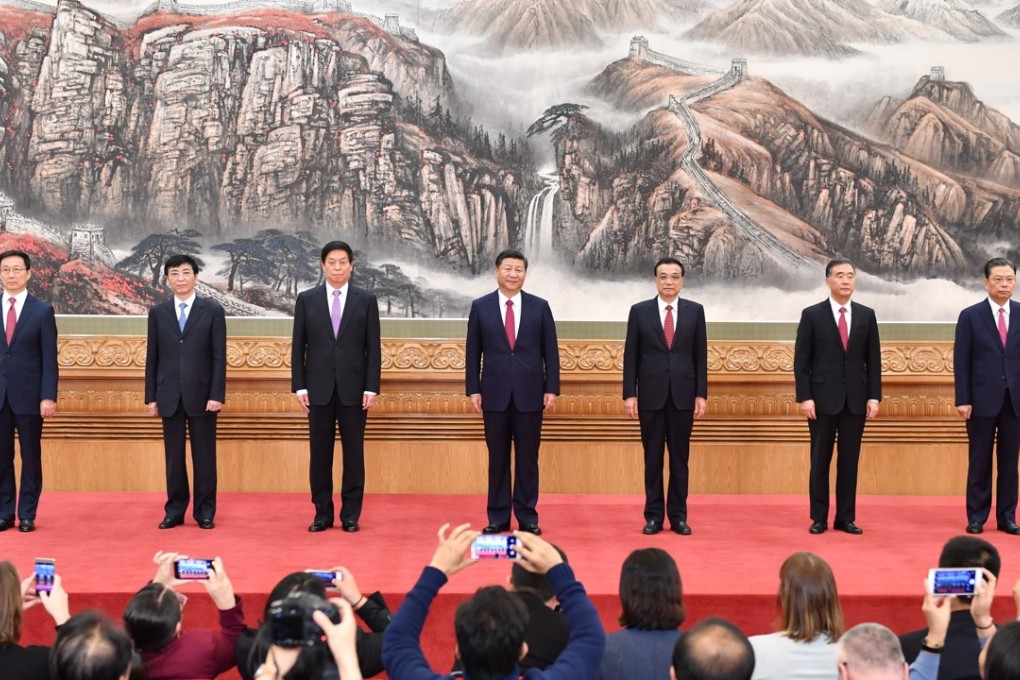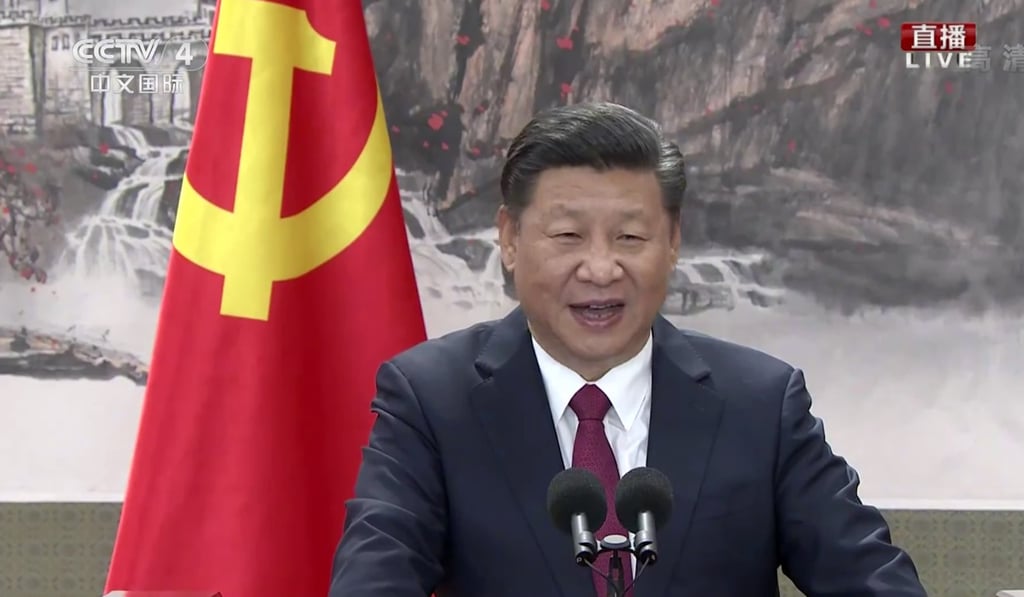Update | China’s new leadership team unveiled: Zhao Leji named as anti-graft chief while Xi Jinping elevates trusted deputy to top military role
The make-up of the Politburo Standing Committee, the country’s supreme political body, has been revealed. Five new faces will back up the president as he looks to advance his political agenda

China’s new leadership lineup has been revealed. The members of the Politburo Standing Committee are, in order of seniority, President Xi Jinping, Premier Li Keqiang, Li Zhanshu, Wang Yang, Wang Huning, Zhao Leji and Han Zheng.
The unveiling of the new lineup marks the climax of the twice-a-decade leadership reshuffle after months-long intense horse trading and power struggles in the lead-up to the 19th party congress.
The new lineup has essentially confirmed previous exclusive reports by the South China Morning Post.
Li Zhanshu, 67, Xi’s chief of staff, looks set to take over the head of China’s National People’s Congress while vice-premier Wang Yang, 62, is expected to become chairman of the top political advisory body, the Chinese People’s Political Consultative Conference.

Wang Huning, 62, the top party theorist and director of the Central Policy Research Office, will be in charge of ideology, propaganda and party organisation.
Zhao Leji, 60, head of the organisation department and the party’s personnel chief, will replace Wang Qishan to become the new anti-graft tsar, while Han Zheng, 63, the Shanghai party chief, will become the executive vice-premier.